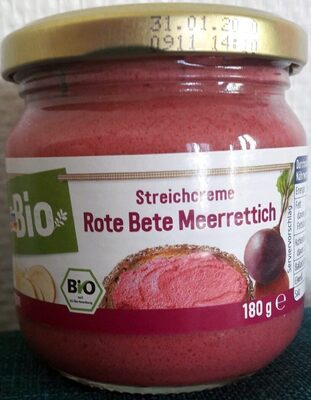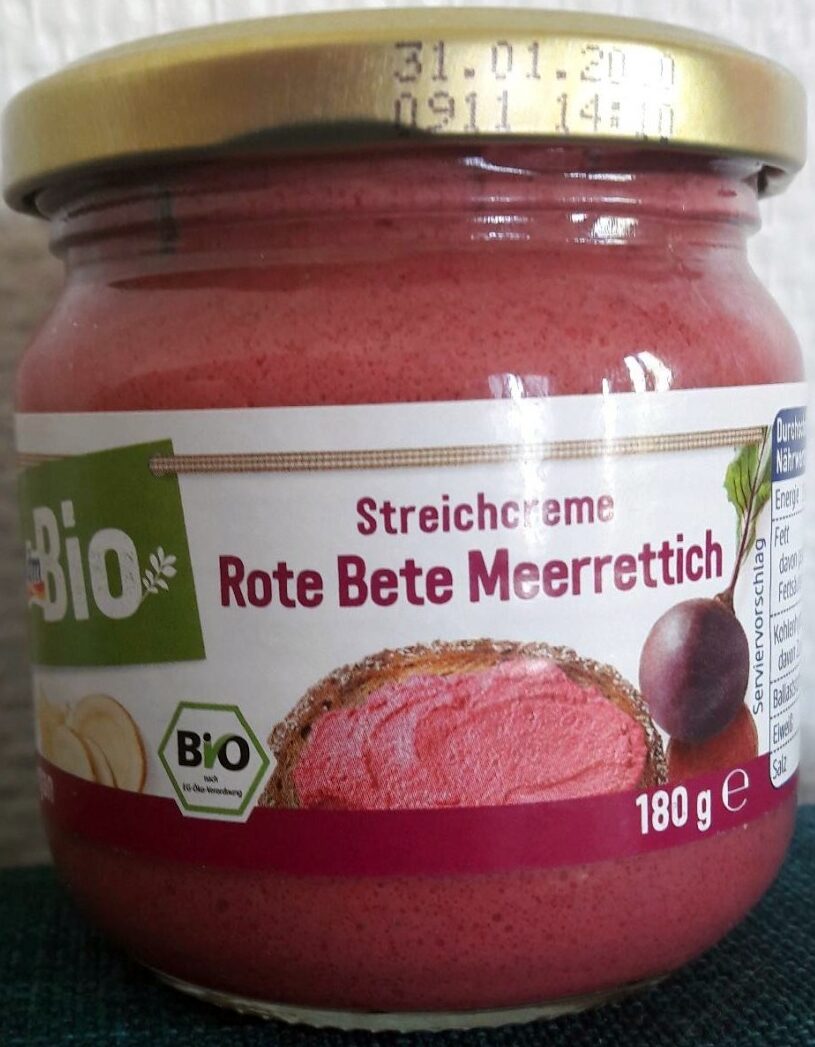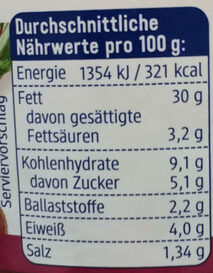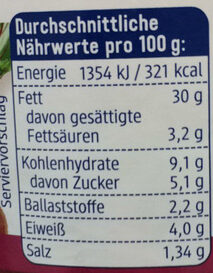Streichcreme Rote Bete Meerrettich - Alnatura - 180g
This product page is not complete. You can help to complete it by editing it and adding more data from the photos we have, or by taking more photos using the app for Android or iPhone/iPad. Thank you!
×
Barcode: 4010355563071 (EAN / EAN-13)
Quantity: 180g
Packaging: Glass
Brands: Alnatura
Categories: Plant-based foods and beverages, Plant-based foods, Spreads, Plant-based spreads, Salted spreads, de:Vegetarische Streichcreme
Labels, certifications, awards:
Organic, Vegetarian, EU Organic, Vegan, EG-Öko-Verordnung, Made in Germany, de:Breitet sich aus, de:Lebensmittel, de:Pflanzliche Brotaufstriche, de:Pflanzliche Lebensmittel, de:Pflanzliche-lebensmittel-und-getränke, de:Vegetarischer Brotaufstrich

Stores: Alnatura
Matching with your preferences
Environment
Packaging
Transportation
Labels
Report a problem
Data sources
Product added on by kiliweb
Last edit of product page on by bartolomeu.
Product page also edited by date-limite-app, eqno, foodrepo, kroetenbloed, openfoodfacts-contributors, packbot, roboto-app, rochus, tacite-mass-editor, yuka.SGI4dEVQa2IvZU5Tc2ZJNXd4M244ZlpNNjZYNFVHTzBjL1lESWc9PQ.











